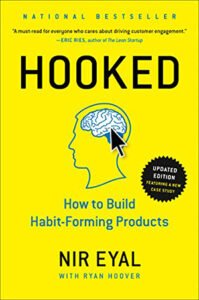|

|
Hooked:
To avoid the cognitive dissonance of not liking something that others seem to take so much pleasure in, we slowly change our perception of the thing we once did not enjoy.
|
140 |
|

|
Hooked:
Rationalization helps us give reasons for our behaviors, even when those reasons might have been designed by others.
|
141 |
|
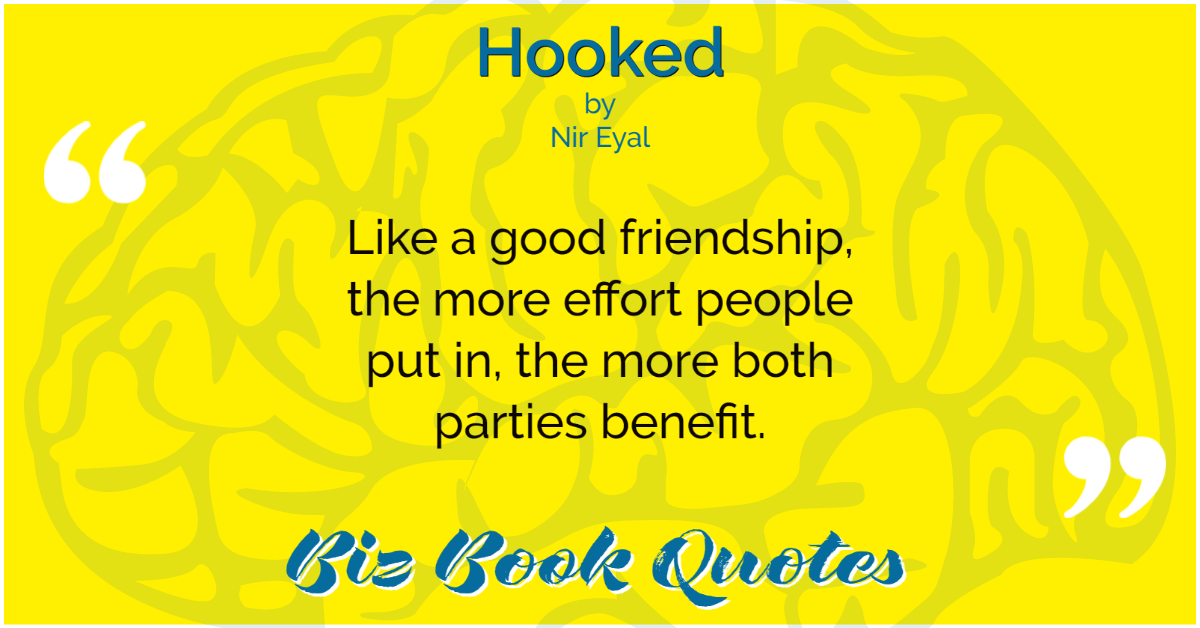
|
Hooked:
Like a good friendship, the more effort people put in, the more both parties benefit.
|
145 |
|
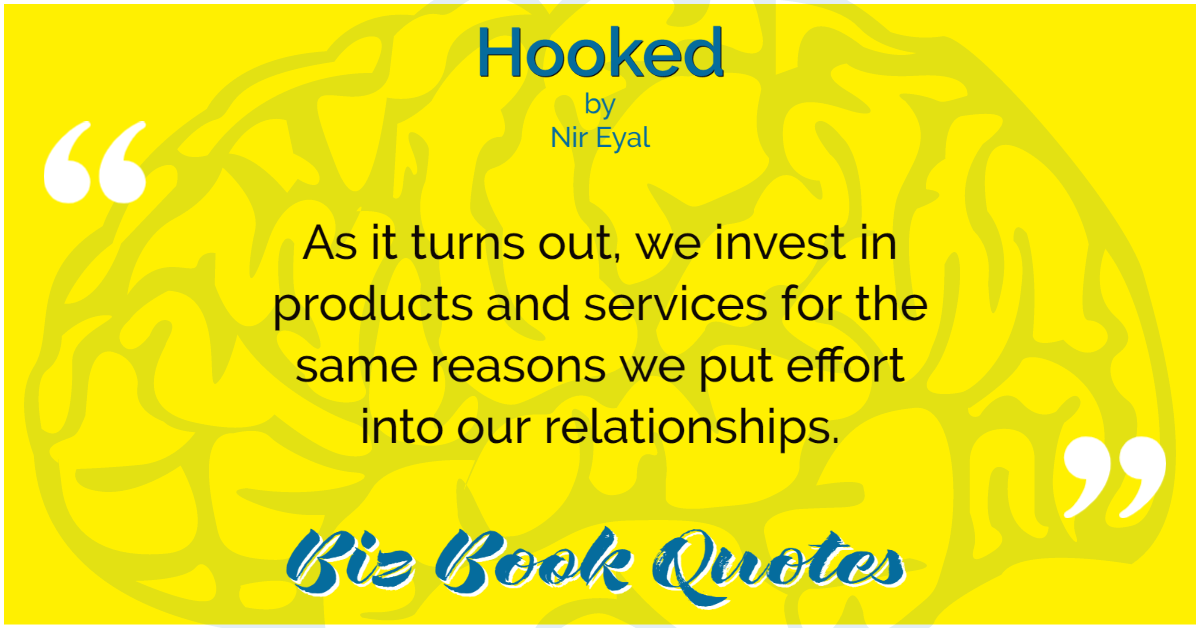
|
Hooked:
As it turns out, we invest in products and services for the same reasons we put effort into our relationships.
|
145 |
|
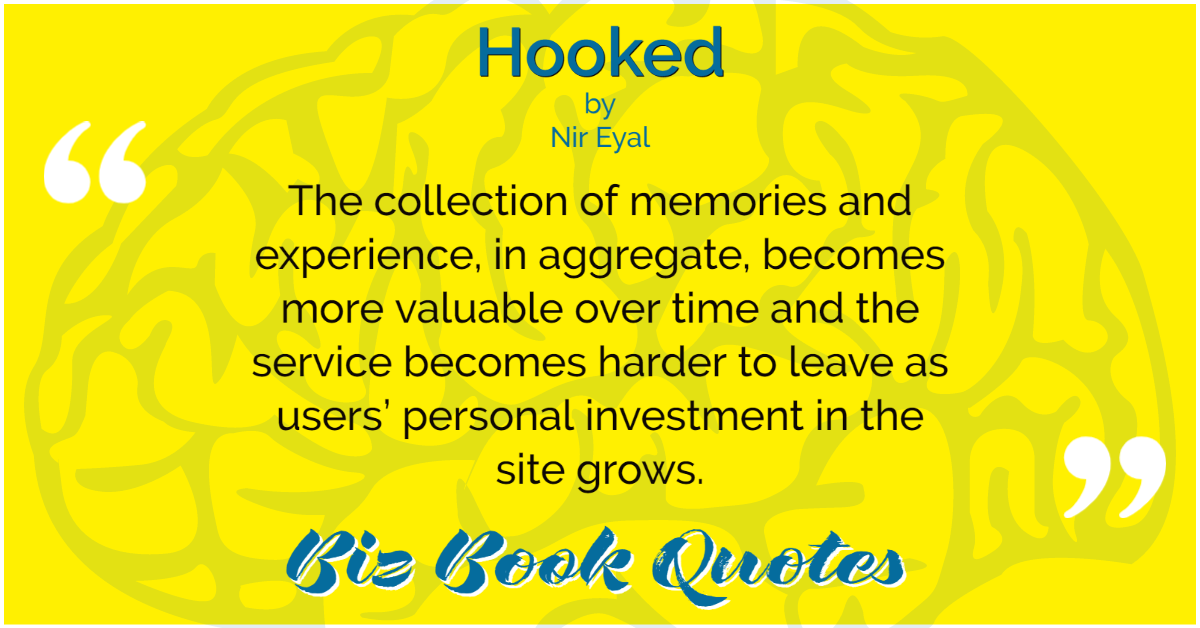
|
Hooked:
The collection of memories and experience, in aggregate, becomes more valuable over time and the service becomes harder to leave as users’ personal investment in the site grows.
|
147 |
|

|
Hooked:
Information generated, collected, or created by users (e.g., songs, photos, or news clippings) are examples of stored value in the form of content.
|
147 |
|
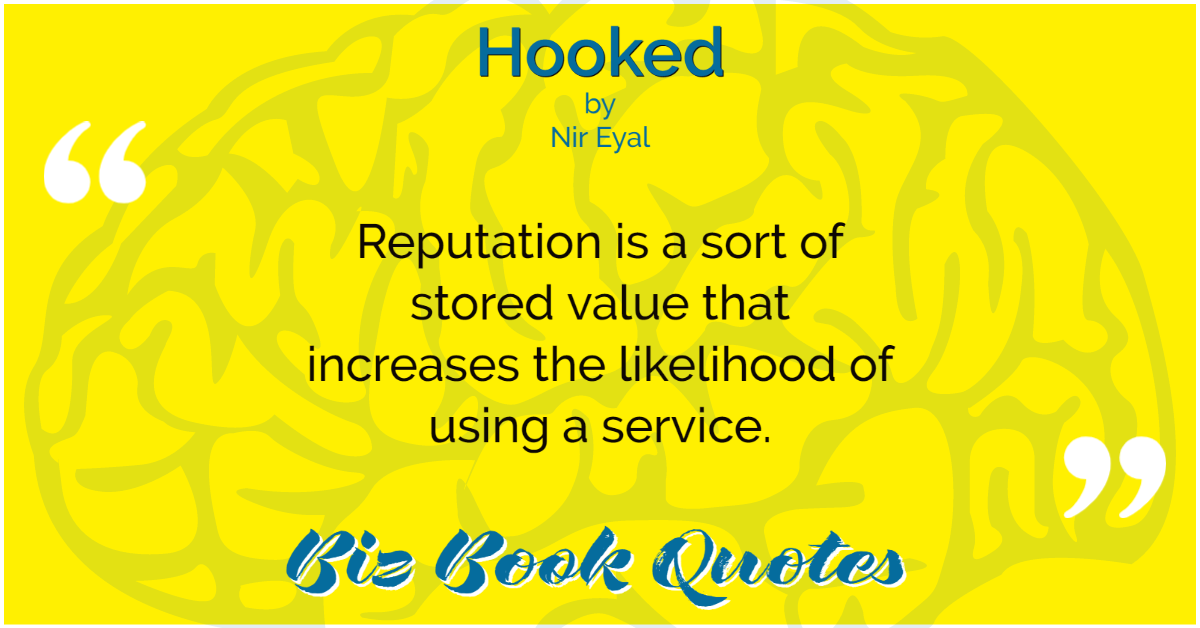
|
Hooked:
Reputation is a sort of stored value that increases the likelihood of using a service.
|
151 |
|
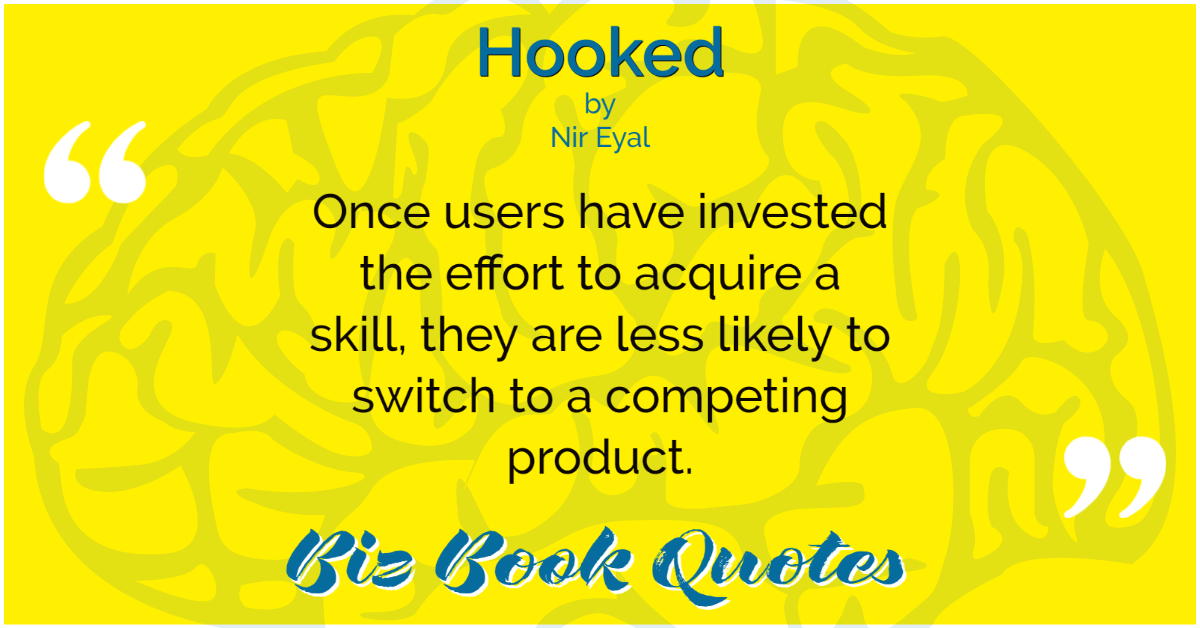
|
Hooked:
Once users have invested the effort to acquire a skill, they are less likely to switch to a competing product.
|
153 |
|
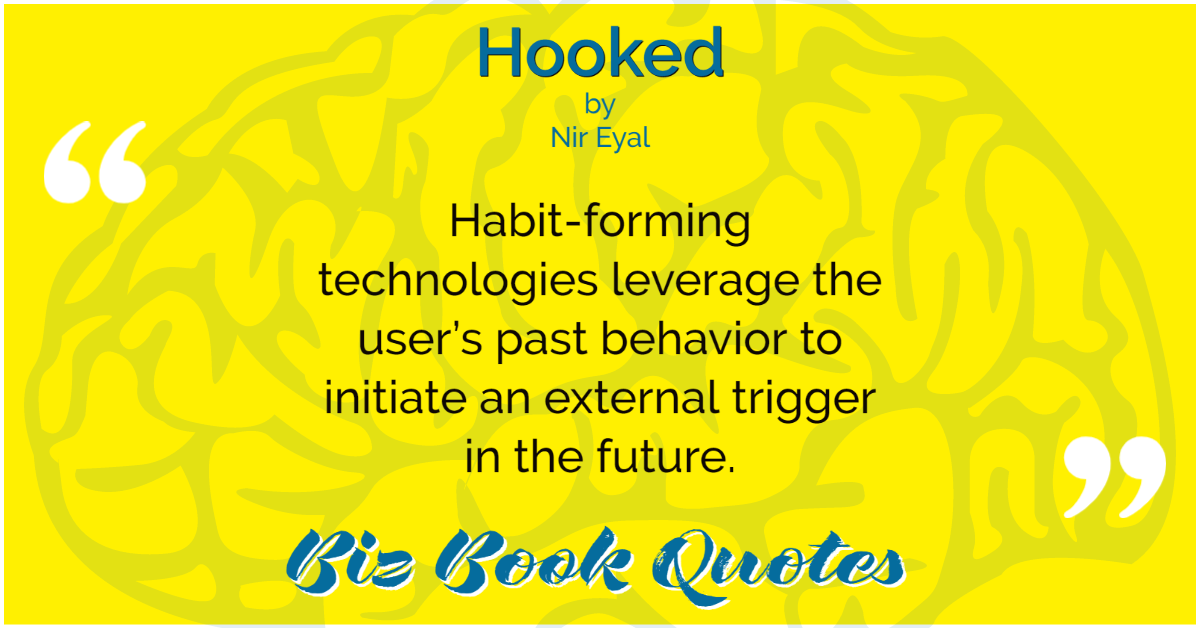
|
Hooked:
Habit-forming technologies leverage the user’s past behavior to initiate an external trigger in the future.
|
154 |
|

|
Hooked:
The more users invest in a product through tiny bits of work, the more valuable the product becomes in their lives and the less they question its use.
|
160 |
